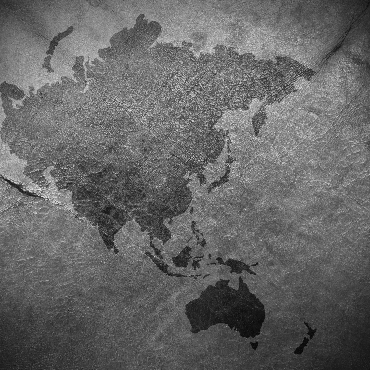LIKE UKRAINE, TAIPEI LOOKS FOR INTERNET RESILIENCY
Amid Russia's ongoing war in Ukraine and intensifying pressure from China, Taiwan is seeking to bolster its internet connectivity. The island relies on undersea fiber optic cables for internet access and digital communications. Beijing has previously exploited this vulnerability by sabotaging the cables of Matsu, a small Taiwan-controlled island close to China. Taiwan's primary concern is an internet blackout in the event of greater political and military conflict with Beijing. In response, Taiwan's space agency is looking to develop a low-Earth orbit satellite network as a means of reinforcing digital communications. The government in Taipei also plans to install more hotspot locations throughout Taiwan, and add additional undersea cable landing terminals in the island's southern tip. In these efforts, Taiwan has been inspired by Ukraine's display of internet resiliency throughout Russia's ongoing invasion. (Wall Street Journal, July 3, 2023)
CHINA, THE SOLOMONS DEEPEN COOPERATION
In mid-July, China and the Solomon Islands deepened their burgeoning partnership. Meeting in Beijing, Honiara's Prime Minister, Manasseh Sogavare, and Chinese Premier Li Qiang announced nine new agreements, among them a pact on police cooperation. The two nations have also upgraded their ties to those of a comprehensive strategic partnership. These developments come four years after the Solomon Islands switched their diplomatic recognition from Taiwan to China, and joined China's Belt and Road Initiative. Notably, Sogavare has also telegraphed his desire to reassess Honiara's 2017 security pact with Australia, historically the Solomon Islands' primary partner on law enforcement and other matters. (Reuters, July 10, 2023)
MALAYSIA'S BRI WOES
As China's Belt and Road Initiative (BRI) reaches its 10-year mark, the project's reputation and success remains a complicated story. Malaysia, a top-10 BRI loan recipient, had great hopes for China's economic assistance just a few years ago. Today, however, China's projects in Malaysia are marked by corruption and delay. One of the largest, the East Coast Rail Link, aims to boost development in Malaysia's less developed regions with a 400-mile railway. However, domestic corruption and spotty oversight have mired the venture in uncertainty. In 2018, for example, then-Prime Minister Najib Razak funneled $700 million of the project's funding into his own private coffers. China was willing to renegotiate the deal's terms, but the rail line is unlikely to be operational until 2027. Additionally, two Beijing-funded gas pipelines remain unbuilt. (NPR, July 26, 2023)
MANILA CRAFTS CONTINGENCY PLAN FOR A TAIWAN WAR
In the face of growing regional tensions in the Indo-Pacific, the Philippines has begun formulating contingency plans in the event of a Chinese invasion of Taiwan. Taiwan's potential as a flashpoint for conflict has prompted Philippine President Ferdinand Marcos, Jr. to seek closer ties with the United States, reversing his predecessor's drift away from Washington. While the Philippines' physical proximity to Taiwan, which lies just 118 miles away, is a liability for Manila, it represents a strategic asset for Washington. The Philippines granted the U.S. access to four additional military bases earlier this year, some of them facing north toward Taiwan. (Reuters, July 20, 2023)
CAMBODIA'S HUN SEN SETS UP HIS SON AS SUCCESSOR
After four decades of rule, Cambodian Prime Minister Hun Sen has formally laid the groundwork for his son to succeed him in office. Gen. Hun Manet is 45 years old, two-and-a-half decades younger than his father. Although Hun Sen did not specify when the formal transfer of power would occur, Cambodia's longtime strongman appears poised to rule behind the scenes even after he leaves office. This summer, his political party, the Cambodia People's Party, prevailed overwhelmingly in elections that the U.S. State Department condemned as "neither free nor fair." (New York Times, July 22, 2023)
Want these sent to your inbox?
Subscribe




